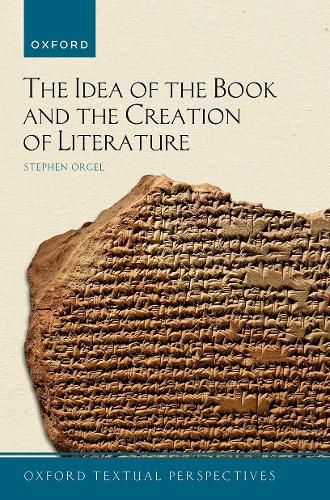Readings Newsletter
Become a Readings Member to make your shopping experience even easier.
Sign in or sign up for free!
You’re not far away from qualifying for FREE standard shipping within Australia
You’ve qualified for FREE standard shipping within Australia
The cart is loading…






The Idea of the Book and the Creation of Literature explores the intersection of literary history and the history of the book. For several millennia, books have been the material embodiment of knowledge and culture, and an essential embodiment for any kind of knowledge involving texts. Texts, however, do not need to be books-they are not even necessarily written. The oldest poems were composed to be recited, and only written down centuries later. Much of the most famous poetry of the English Renaissance was composed in manuscript form to circulate among a small social circle. Plays began as scripts for performance. What happens to a play when it becomes a book, or to a collection of poems circulated among friends when it becomes a volume of sonnets? How do essays, plays, poems, stories, become Works? How is an author imagined? In this new addition to the Oxford Textual Perspectives series, Stephen Orgel addresses such questions and considers the idea of the book not simply as a container for written work, but as an essential element in its creation.
$9.00 standard shipping within Australia
FREE standard shipping within Australia for orders over $100.00
Express & International shipping calculated at checkout
The Idea of the Book and the Creation of Literature explores the intersection of literary history and the history of the book. For several millennia, books have been the material embodiment of knowledge and culture, and an essential embodiment for any kind of knowledge involving texts. Texts, however, do not need to be books-they are not even necessarily written. The oldest poems were composed to be recited, and only written down centuries later. Much of the most famous poetry of the English Renaissance was composed in manuscript form to circulate among a small social circle. Plays began as scripts for performance. What happens to a play when it becomes a book, or to a collection of poems circulated among friends when it becomes a volume of sonnets? How do essays, plays, poems, stories, become Works? How is an author imagined? In this new addition to the Oxford Textual Perspectives series, Stephen Orgel addresses such questions and considers the idea of the book not simply as a container for written work, but as an essential element in its creation.